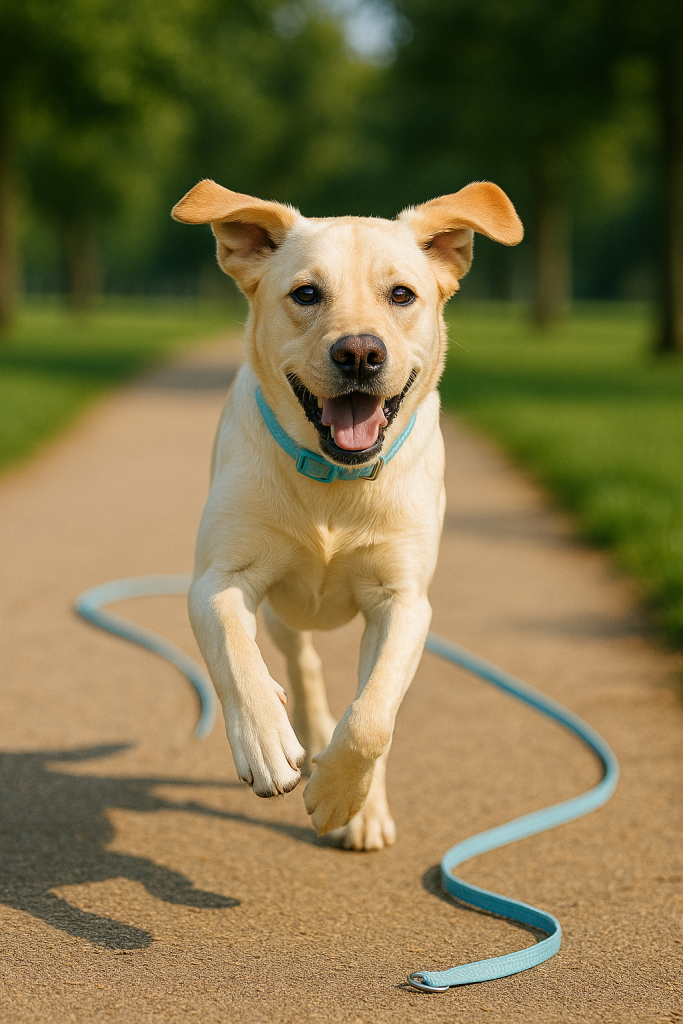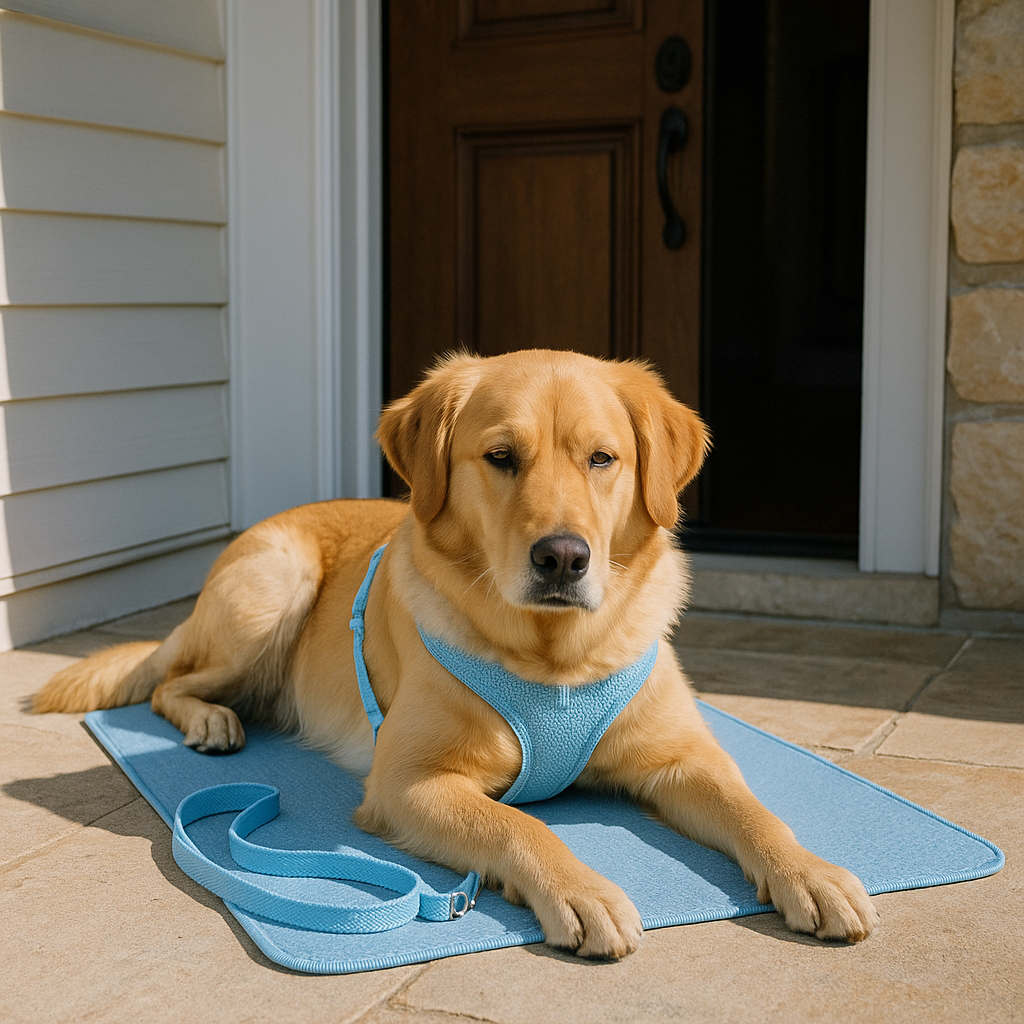How to Get Your Puppy to Listen to You
Ever watched your puppy completely ignore you while they’re busy investigating a particularly fascinating leaf? You call their name, and they look at you for half a second before going right back to their important leaf investigation. Sound familiar? Here’s the thing — your puppy isn’t trying to be rebellious. They’re just being a puppy, and we need to speak their language if we want them to speak ours.
After training hundreds of pups here in Connecticut (from tiny Yorkies to massive Saint Bernards), I’ve learned that getting a puppy to listen isn’t about dominance or showing them “who’s boss.” It’s about building a communication bridge between two different species. And honestly? Puppies are usually better at this than we are.
The Foundation: Why Your Puppy Tunes You Out
Let me paint you a picture. Your puppy’s brain is like a browser with 47 tabs open — there’s the squirrel tab, the interesting smell tab, the “what’s that sound?” tab, and somewhere in there, buried under all the exciting stuff, is the tab with your voice. Our job isn’t to close all those other tabs (impossible!), but to make our tab the most interesting one.
Puppies aren’t born knowing that human sounds mean something. When you say “sit,” your pup hears noise that’s competing with birds chirping, cars passing, and that super important stick they just found. The breakthrough happens when they realize that paying attention to your weird human noises leads to good things happening.
Here’s what’s really going on in that furry little head: puppies have an attention span of about 5-10 seconds when they’re young. That’s not a flaw — it’s actually perfect for their survival instincts. Quick attention shifts help them learn about their environment fast. We just need to work with this, not against it.
Building the Connection
The secret to getting your puppy to listen starts before you even open your mouth. Yeah, I know that sounds backwards, but stick with me here.
First, you need to become the most interesting thing in your puppy’s world. Not through force or intimidation — through being genuinely fun and rewarding. Think of yourself as that friend everyone wants to hang out with because cool stuff always happens when they’re around. That should be you for your puppy.
Start with what I call “no-pressure hangouts.” Sit on the floor with your puppy and just… exist together. When they come to check you out (and they will, puppies are nosy), that’s when the magic happens. A gentle pet, a calm “good dog,” maybe a tiny treat. You’re teaching them that choosing to pay attention to you is always a win.
Now, about those treats — and yes, I’m going to suggest using them. I know some folks think it’s bribery, but here’s my take: you wouldn’t go to work without a paycheck, right? For puppies, treats, play, and praise are their paycheck for the hard work of learning human language.
The Three Pillars of Puppy Listening
Over the years, I’ve boiled it down to three main components that transform a distracted furball into an attentive companion. Think of these as the legs of a stool — you need all three, or the whole thing wobbles.
Timing Is Everything
Dogs live in the moment. Not yesterday, not five minutes from now — right now. When your puppy does something right, you’ve got exactly three seconds to let them know. After that? They’ve moved on mentally, and your praise or correction is just confusing noise.
I once had a client who’d wait until her puppy came inside to reward him for peeing outside. By then, the puppy thought he was getting treats for walking through the door. No wonder he was confused! The moment your puppy’s bottom hits the ground when you say “sit” — boom, that’s when the party starts.
Consistency (The Boring But Crucial Part)
Look, I get it. Consistency isn’t sexy. But if “down” means lie down on Monday, get off the couch on Tuesday, and stop jumping on Wednesday, you’re basically speaking gibberish to your dog.
Here’s a simple table to keep your commands straight:
| Command | What It Means | Common Mistakes |
|---|---|---|
| Down | Lie on the ground | Using it for “get off” or “stop jumping” |
| Off | Get off furniture/person | Saying “down” when you mean “off” |
| Come | Move to me right now | Using their name alone as a recall |
| Leave it | Don’t touch that thing | Saying “no” for everything |
| Stay | Don’t move until released | Forgetting to release them |
Everyone in your household needs to use the same words for the same actions. Yes, even your teenager who insists on calling the dog “bruh” and making up their own commands.
Make It Worth Their While
Your puppy’s constantly making calculations: “Is listening to this human worth stopping what I’m doing?” You need to make sure the answer is always yes. This doesn’t mean showering them with treats 24/7. Sometimes the reward is a game of tug, a belly rub, or getting to sniff that fire hydrant they’re obsessed with.
The trick is knowing what your individual puppy values most. I’ve trained puppies who’d sell their soul for a piece of cheese, and others who couldn’t care less about food but would do backflips for a tennis ball. One Border Collie puppy I worked with was motivated by… wait for it… ice cubes. Dogs are weird, and that’s why we love them.
Common Roadblocks (And How to Bulldoze Through Them)
“My puppy knows the commands but chooses to ignore them!” I hear this at least three times a week. Here’s the truth bomb: if your puppy isn’t responding, they don’t actually know the command as well as you think they do.
Training in your living room is level one. Training in the backyard is level five. Training at the park with squirrels running around? That’s level fifty. You can’t expect your puppy to perform calculus when they’ve only learned addition. Every new environment is like starting over, just a bit easier each time.
Another big one: “My puppy only listens when I have treats.” Well, yeah — because you’ve become a human vending machine. The fix? Start phasing treats out randomly once your puppy knows a command. Sometimes they get a treat, sometimes praise, sometimes a game. Keep them guessing, and they’ll keep trying.
Age matters too. A 10-week-old puppy listening to you is like asking a toddler to write a dissertation. Their brain literally isn’t developed enough for complex tasks. Focus on one or two simple things at a time. Name recognition and “come” are plenty for a baby puppy. You can add the fancy stuff later.
The Game-Changer: Making Training Feel Like Play
Want to know the difference between dogs who listen and dogs who don’t? The ones who listen have owners who turned training into the best game ever.
Try this: Next time you’re out with your puppy, randomly call their name. When they look at you, throw a party like they just won the Nobel Prize. Then… let them go back to what they were doing. Do this twenty times a day. Within a week, your puppy will be checking in with you constantly, wondering if it’s party time again.
Or this one — the “magical leash game.” Every time your puppy happens to walk next to you (even by accident), drop a treat by your foot. Don’t say anything, just drop it. Pretty soon, your puppy will think the space next to you is where treats magically appear. Boom — loose leash walking without a single formal training session.
Real Talk: When to Adjust Your Expectations
Sometimes the problem isn’t your puppy — it’s your timeline. Expecting a 4-month-old puppy to have perfect recall is like expecting a kindergartener to do your taxes. Could it theoretically happen? Maybe. Is it realistic? Absolutely not.
Most puppies don’t have solid, reliable listening skills until they’re at least 6-8 months old, and even then, they’re teenagers who occasionally decide your rules are more like suggestions. That’s normal. You’re not failing, your puppy isn’t broken, and yes, it does get better.
And here’s something nobody talks about enough: some days, your puppy just won’t have it. Maybe they’re teething, maybe they’re having a growth spurt, maybe Mercury is in retrograde — who knows? On those days, lower your expectations, keep sessions super short, and remember that tomorrow is a new day.
Getting your puppy to listen isn’t about being the alpha or establishing dominance or any of that outdated nonsense. It’s about building a relationship where your puppy genuinely wants to work with you. It’s about being clear, consistent, and way more interesting than whatever else is going on.
Will there be days when your puppy looks you dead in the eye and chooses chaos? Absolutely. I’ve been training dogs for years, and my own dog still occasionally pretends he’s never heard the word “come” in his life when there’s a really good smell to investigate.
But here’s the beautiful thing — every time your puppy chooses to listen, that neural pathway gets a little stronger. Every successful “sit,” every time they come when called, every moment they choose you over distraction, you’re building something. Not just obedience, but trust, communication, and honestly? A pretty amazing friendship.
So grab those treats, channel your inner cheerleader, and remember: your puppy wants to understand you just as much as you want them to listen. You’ve just got to meet them halfway — preferably with cheese.

